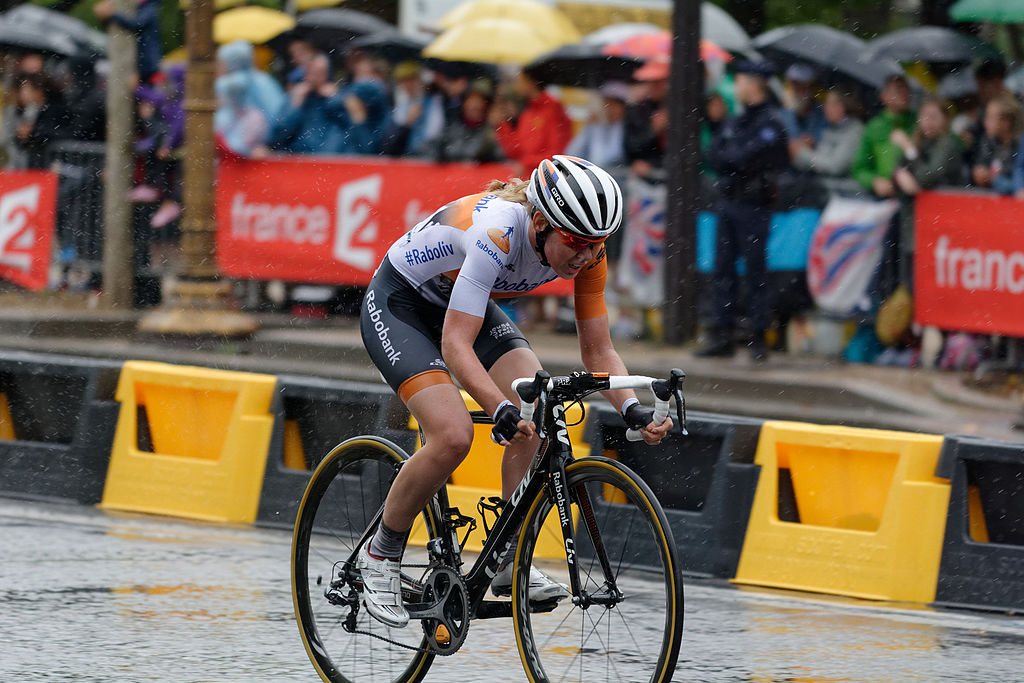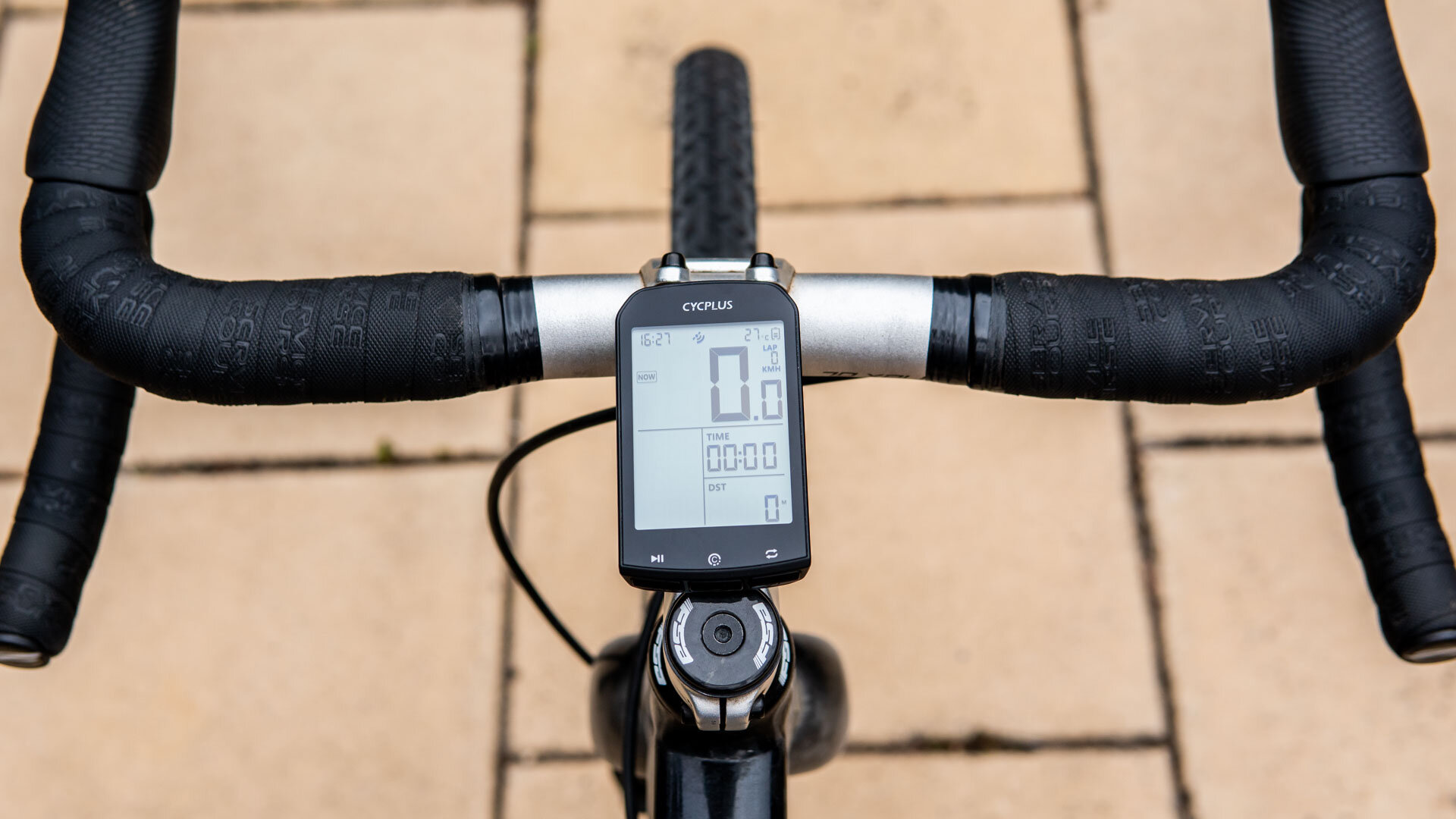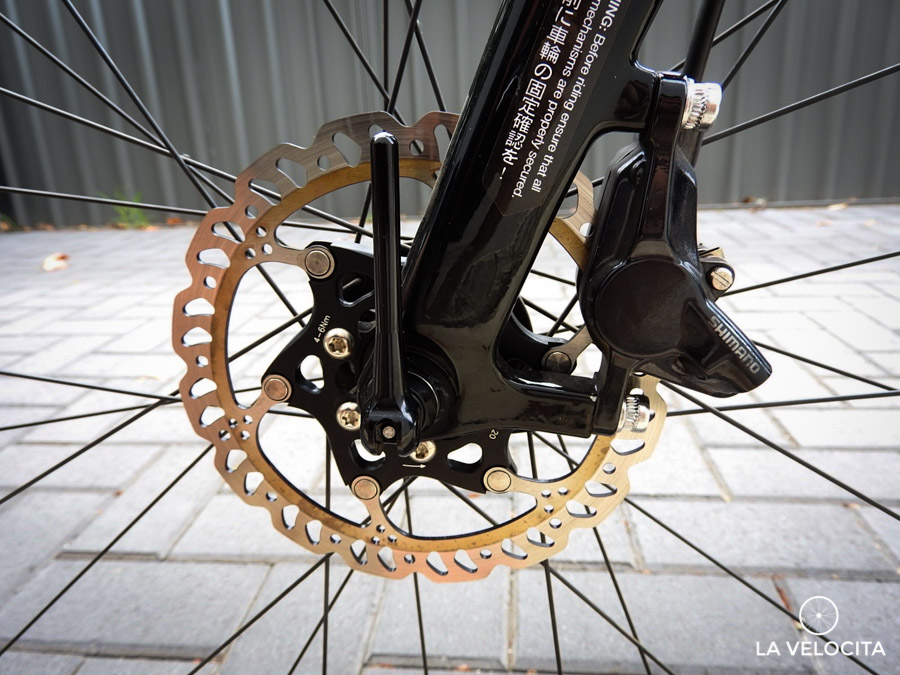Why you should care about…La Course by Le Tour de France

Bike racing is awesome. La Course is not just a bike race, it's an important bike race. Here's 4 big reasons why you should watch it.
Words - Tom McQuillan Images - Wikimedia Commons
It's an important step towards gender equality in cycling
Even though La Course is only in its third year, it's already one of the highest profile events on the women's road racing calendar, forming part of the inaugural UCI Women’s World Tour. Realistically, only the world championships and Olympic road race come close in terms of prestige in women’s cycling. Other events may be older, but the fact that La Course is an event televised in 190 countries with a huge crowd and priority over the concurrent men's race is a combination that no other race can match.
The first important step towards equality for La Course is the level of TV coverage. There are other women’s races that run on the same day as the men, using parts of the same race route, as the men, and employing the same host broadcasters as the men. However, these races are relatively few in number – among them the early season classics Omloop het Nieuwsblad, the Tour of Flanders and Flèche Wallonne - and will only show the winner approaching the line, if that at all. This footage often won’t be live either, as the host broadcaster will usually wait until there’s a lull in the men’s race to show it, as happened with the finale of this year’s women’s Tour of Flanders. This implies that women’s racing should only be televised if there’s nothing happening in men’s racing, which we at La Velocita strongly disagree with.
Crucially, the prize money handed out for La Course will be the same as the men’s stage – there’s €22,500 on offer in total, with the winner taking home €6,000. Gender equality in prize money is unfortunately quite rare in women’s cycling (Megan Guarnier, winner of the recent Giro d’Italia, took home €1,050 euros for winning women’s cycling’s most important stage race, compared to €115,000 for her male counterpart Vincenzo Nibali), so it’s encouraging to see a suitably large prize purse here. Hopefully this year will see all the teams get paid on time.
Even more encouraging is that two of the partners in this year’s edition of the course are French national lottery FDJ and television statistics company Dimension Data, both of whom sponsor teams currently competing in the men’s Tour de France. In a sport where sponsors are expected to provide the bulk of a team’s income, it’s heartening to see companies already prominent in men’s cycling seeing the value of growing the women’s sport.
Perhaps the most bizarre example of gender equality from La Course was the 2014 race’s use of ‘podium boys’, to match the podium girls that accompany the men’s race. While it does make the women’s race more like the men’s race, it’s arguably not the kind of equality a lot of people want to see, given that many people see having podium girls as an outdated and sexist practice.
It's the most exciting thing happening all day
The first half of the final day of the Tour de France is traditionally a day of celebration and ceremony. After the flag is dropped, the classification winners will pose for photographs, the winner will sip champagne (though not too much) and the members of the peloton who have survived the 3000+ kilometres of the Tour de France to this point will have a bit of a laugh. While there's no denying that the riders have earned an easy day after three weeks of busting their guts, it doesn't exactly make for riveting television.
By contrast, La Course starts at 1:30pm Central European Time (9:30pm AEST), so you'll be able to watch exciting racing while the men joke around as they make their way to the Champs-Elysees before they wind up to the final stage of their Tour.
In fact, we think the racing on the women's side will be even more exciting than the men.
Here's why...
There are no passengers
While all the members of the men's peloton are happy to make it to Paris, there'll be plenty of members of the bunch who won't be trying to win the stage. This could be because they're protecting their team leader's high GC position (like Sky and Movistar), because their top sprinter has abandoned the race (like Cofidis and Bora-Argon 18), or because they're simply too tired to do anything except sit in the bunch.
The women's peloton, however, will be fresh and out for blood, so there'll be plenty of riders willing to try their luck with an escape – such as the one Anna van der Breggen employed on her way to victory last year - and just as many ready to chase them down. With the stakes as high as this, no one will be just trying to survive to the end: everyone will be racing for the win.
The win is up for grabs
Ask any casual sports fan to name a famous female road cyclist and you're likely to get a blank stare. If they do manage to name someone, chances are it'll be Marianne Vos. The Dutchwoman has been the dominant rider of the past decade of women's racing, and is widely acknowledged as one of the greatest ever to pedal a bike - male or female.
Vos won the inaugural running of La Course in 2014 in a sprint finish while wearing the rainbow jersey of world champion, but since then the Rabo-Liv rider has been sidelined with injury and has only just started to return to top form – she’s just won two stages at the Thüringen Rundfahrt in Germany. That leaves the door wide open for a lesser-known rider to make a name for themselves on the sport's biggest stage. At La Velocita we've got three riders we expect to take the win.
Lizzie Armitstead (Boels-Dolmans) is probably Vos' closest rival in terms of physical ability - she took silver behind Vos in the road race at the London Olympics, and will roll onto the Champs Élysées wearing the rainbow-striped jersey of the current world champion. Armitstead has had one of the most dominant years in the rainbow jersey in recent memory, racking up wins in four different Women’s WorldTour events so far in 2016 - Strade Bianche, the Trofeo Alfredo Binda, the Tour of Flanders, and the Aviva Women’s Tour of Britain. On form alone she’s the best rider in the world right now, but she’s made it quite clear that her real focus is winning gold in the Olympic road race in Rio next month, and as such she’s been focusing on her climbing rather than her sprinting.
While Vos and Armitstead are all-rounders with a decent sprint (imagine Peter Sagan, but a better climber), Dutchwoman Kirsten Wild is a pure sprinter in the mould of Andre Greipel or Marcel Kittel. Wild - pronounced vild - was second to Vos in the inaugural edition of La Course in 2014, and is perfectly suited to the flat course. Though she hasn’t been as dominant in sprints as she has been in the past, she’s still the fastest woman in the world on her day, and will start as the favourite on Sunday. If you want to spot her, look for the Hitec Products rider with the broadest shoulders – she’s pretty hard to mistake.
While Wild is deservedly the favourite, our pick for the win is Canadian sprinter Leah Kirchmann (Liv-Plantur). Kirchmann has had a breakout season in 2016. She's been extremely consistent all year, with a string of top-10 finishes and a couple of high-profile wins, including the prologue at the Giro Rosa and the Drentse Acht van Westerveld in the Netherlands. She was third in the inaugural edition of La Course in 2014, and she’s our choice to take the title this year.
If you’re looking for Kirchmann, she’ll be the best positioned rider wearing a Liv-Plantur jersey – it’s predominantly black with white, green and purple accents.
Okay, sounds awesome. How do I watch it?
You can watch La Course on your local Tour de France broadcaster – the pictures will be broadcast to 190 countries around the world. If you’re following along on Twitter, the official hashtag is #LaCourse, though #tdf is a good fallback if you’re
















As we are well into winter everyone is asking me about lights, however, I think you should be riding with front and rear lights all year round, no matter what time of day or night, terrain, country or city, bike paths or roads.